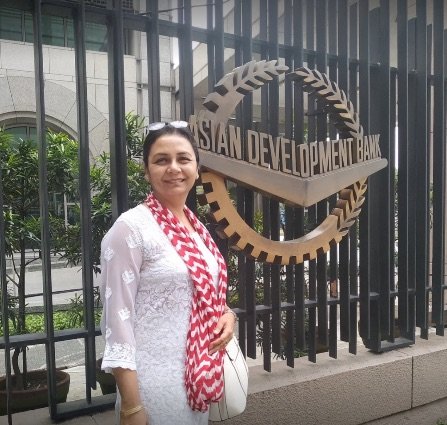-
What inspired you to start writing?
The inspiration came from a disconnect I observed in my policy and education work — where education, ESG commitments, and workforce development were advancing in parallel, but rarely converging. I wanted to build a framework that not only diagnoses this fragmentation but offers a way to reimagine these domains as mutually reinforcing. The series is both a critique and a blueprint — to turn learners into system shapers, not just job seekers or knowledge absorbers.
-
Can you tell us a little about your latest book?
We don’t just need better systems — we need system shapers.
Global Goals for Societal Transformation is not just a call for reform. It’s an invitation to rethink how we prepare people — especially young people — to lead with values, to navigate complexity, and to design futures worth living in.
I want readers to see that education, sustainability, and ethical leadership are not separate silos. When we align them, we create the conditions for real transformation — not just in institutions, but in mindsets, policies, and possibilities.
Whether you’re a policymaker, educator, student, or sustainability professional, my hope is that this book gives you a clearer map and a deeper sense of agency in shaping the systems around you.
-
How do you create your characters?
This is an academic oriented book
-
What does your typical writing day look like?
3-4 hours daily on this writing work only.
-
What has been the most rewarding part of being an indie author?
This offer of free promotion for one year is very encouraging for new authors and research scholars like me.
-
What’s one challenge you’ve faced in your writing journey?
Start writing before you feel “ready.” Don’t wait for the perfect idea, the perfect moment, or the perfect structure — clarity comes from engagement, not from hesitation. Writing is not about having all the answers; it’s about holding questions long enough to shape something meaningful.
Also, don’t underestimate the value of your unique perspective. Especially if you’re writing across disciplines — education, sustainability, policy — your voice might not fit a mold. That’s a strength, not a flaw. Lean into it.
And finally, protect your energy. Not everything you write has to be public, but everything you write should feel true.
-
Do you have any favorite writing tools or apps?
Nothing specific
-
What advice would you give to new or aspiring indie authors?
Keep your cool and stay focussed
-
How do you handle book promotion as an indie author?
Have been using Linkedin and direct emails to my specific audience and stakeholders like Academia, universities , Libraries, Government departments and Ministries , and Business Groups etc.
-
What’s next for you? Are you working on a new book?
yes have already started work on the new book called “ Heritage and the SDGs: Safeguarding the Past to Sustain the Future”.


